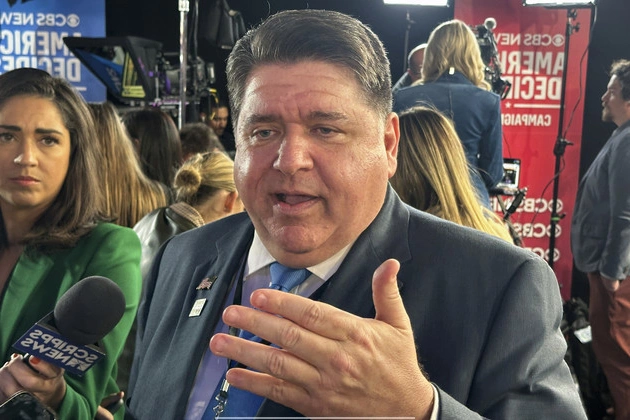
The Trump administration has initiated legal action against Illinois and Chicago, targeting their anti-sanctuary laws that restrict cooperation with immigration enforcement. The lawsuit argues that these laws infringe upon federal authority and impede the duties of immigration officers.
Specifically, the complaint filed in federal District Court in Chicago contends that the provisions in Illinois, Chicago, and Cook County laws hinder the sharing of crucial information between local and federal authorities, hampering the detention of removable aliens, including those with criminal backgrounds.
This legal move underscores the administration’s commitment to focusing on Chicago as part of its immigration enforcement strategy, aiming to crack down on undocumented individuals with criminal records. Governor JB Pritzker and Chicago Mayor Brandon Johnson, both Democrats, are named as defendants in the case.
Pritzker has defended Illinois laws, emphasizing compliance with federal regulations while prioritizing police resources for combating crime. Despite supporting the arrest of violent criminals among undocumented immigrants, he has criticized Trump’s immigration policies, including attempts to revoke birthright citizenship.
The lawsuit follows a recent agreement by several Democratic mayors, including Johnson, to testify before Congress regarding sanctuary policies. The Trump administration’s immigration agenda has faced resistance from community advocates promoting awareness of individuals’ rights when encountering ICE agents.
In the past, similar legal challenges against sanctuary laws were brought by the Justice Department, as seen in the case against California. While California largely retained its sanctuary-related legislation after legal proceedings, the current lawsuit against Illinois signals the administration’s continued efforts in this contentious legal arena.
Notably, career DOJ attorneys involved in the California case have contributed to drafting the Illinois lawsuit, indicating a strategic continuity in challenging sanctuary jurisdictions.















